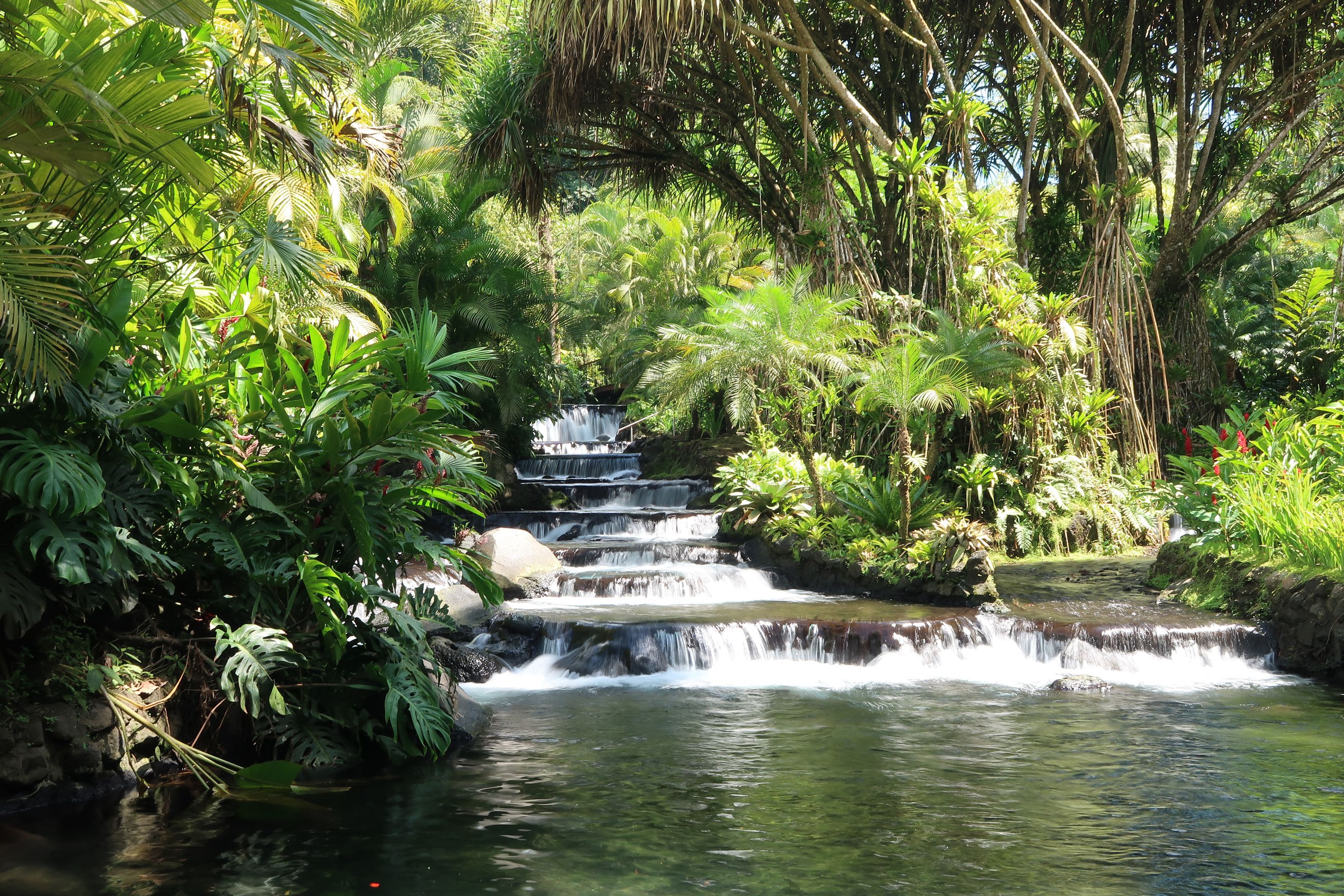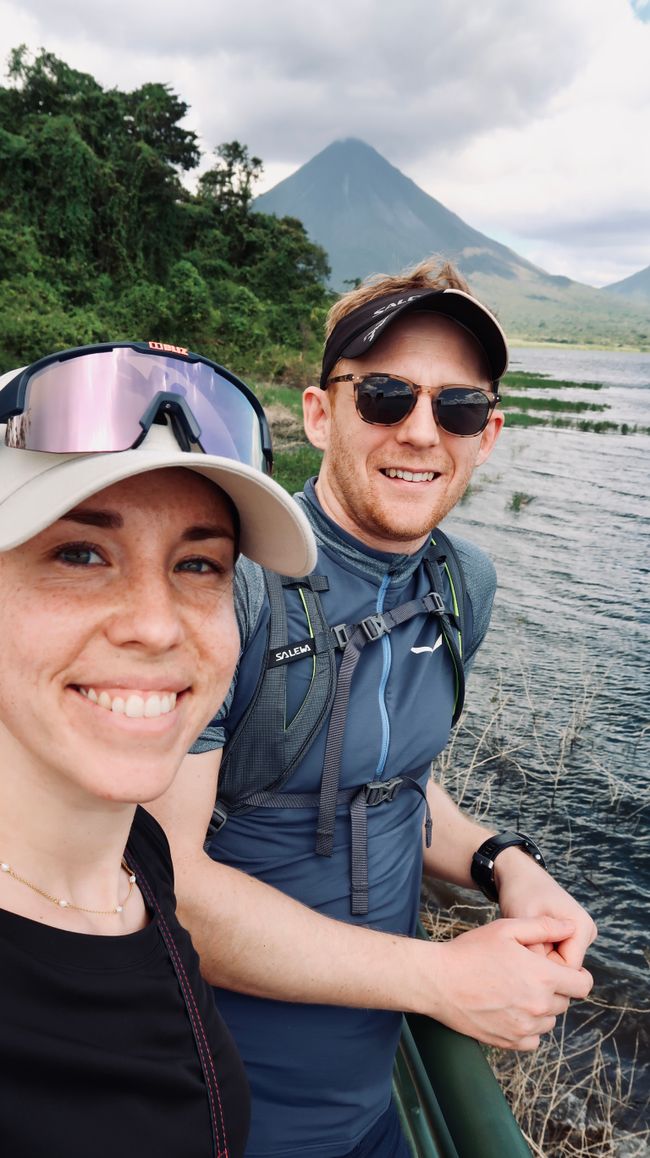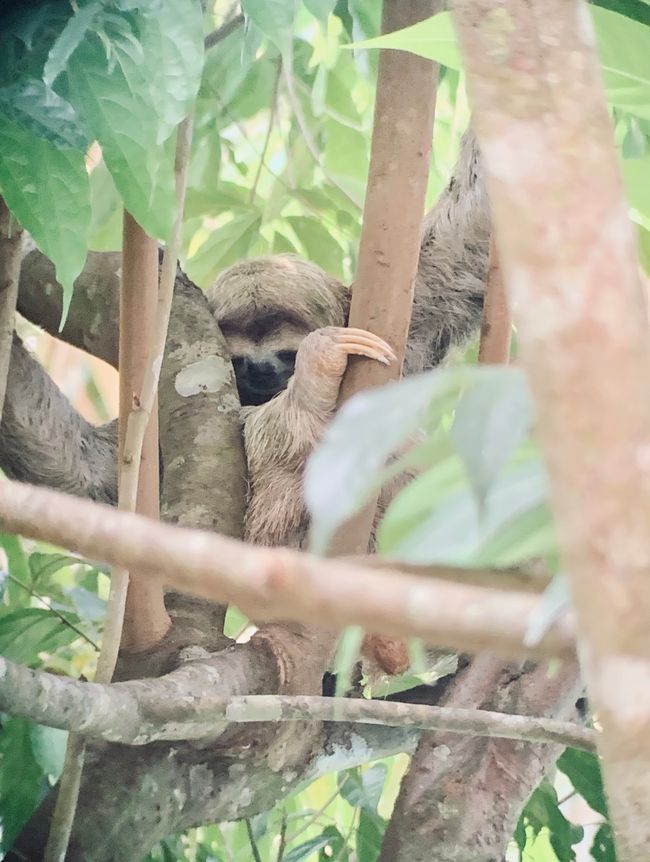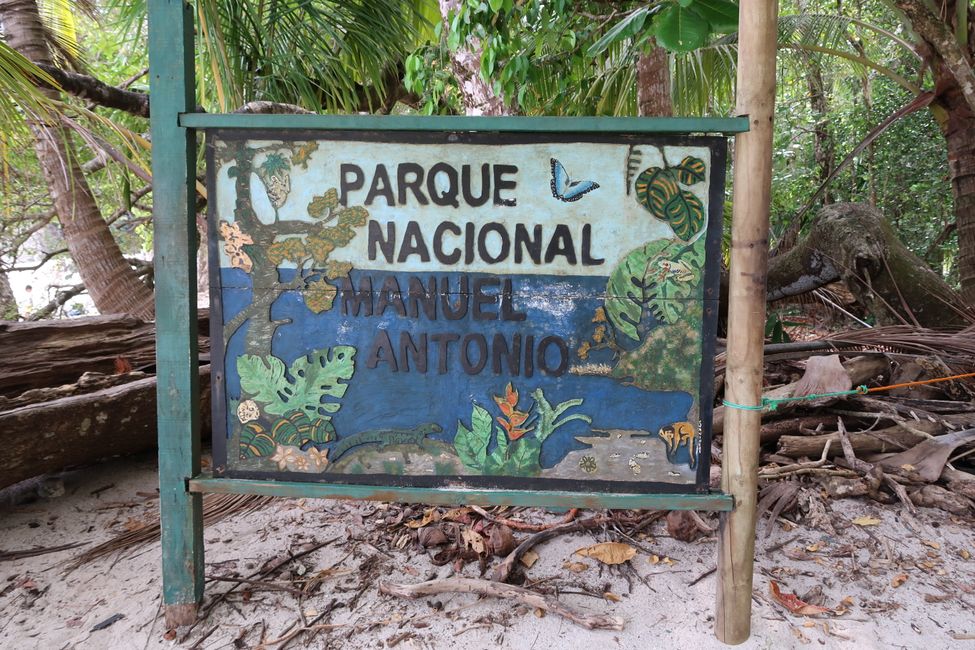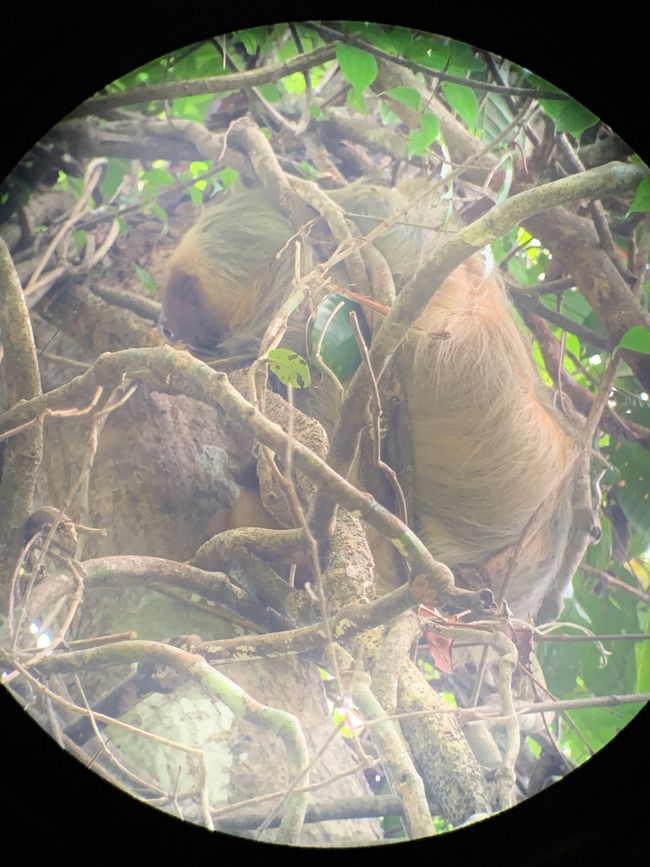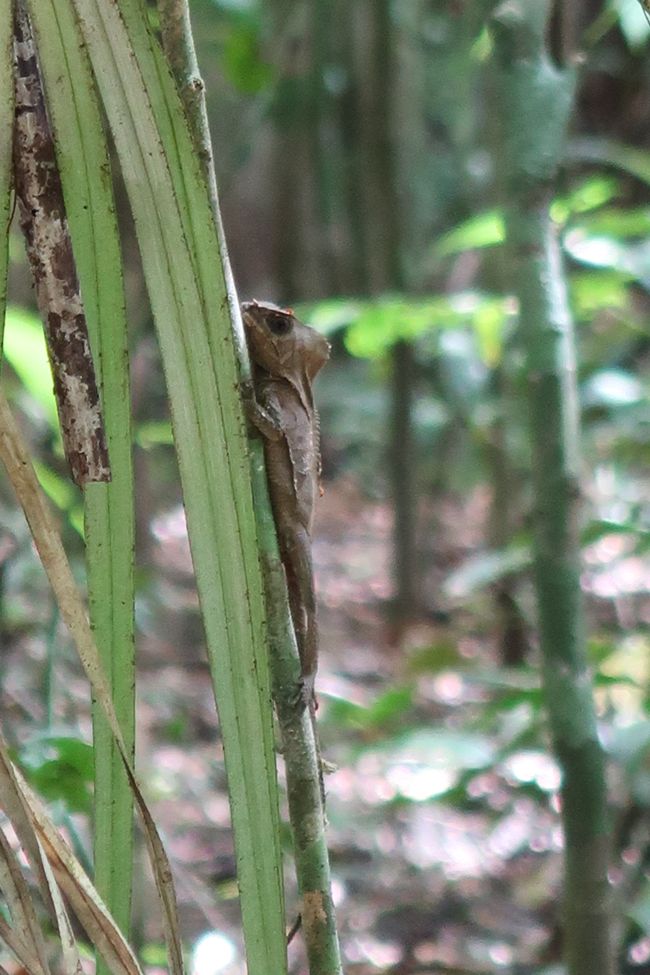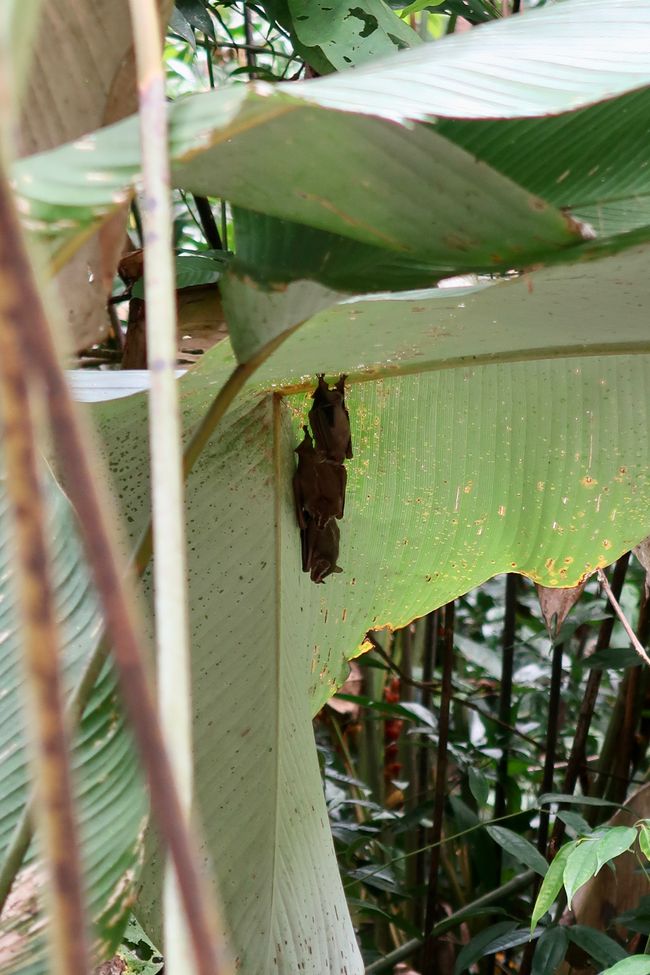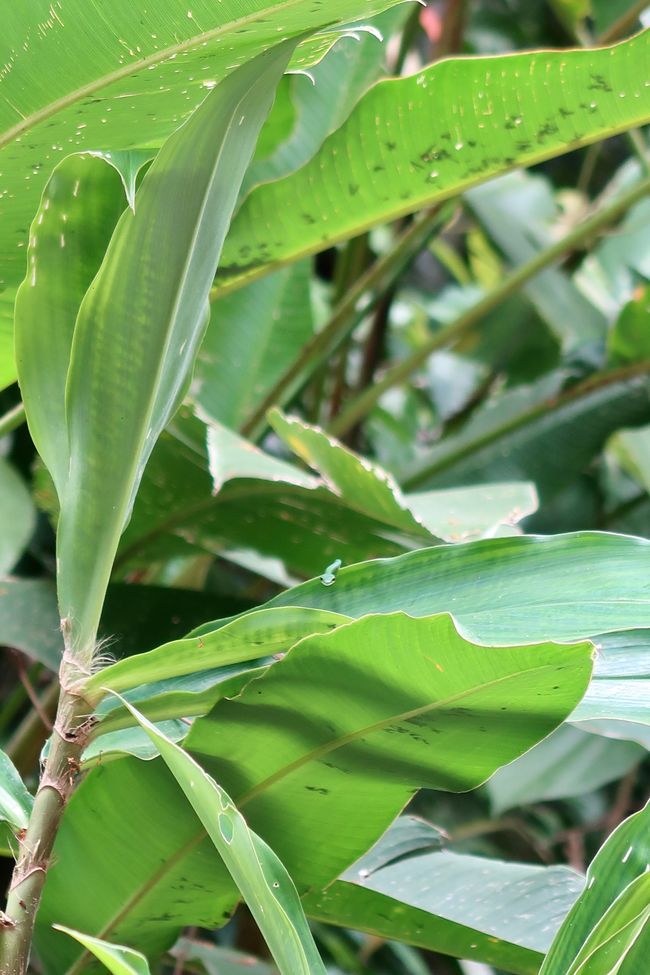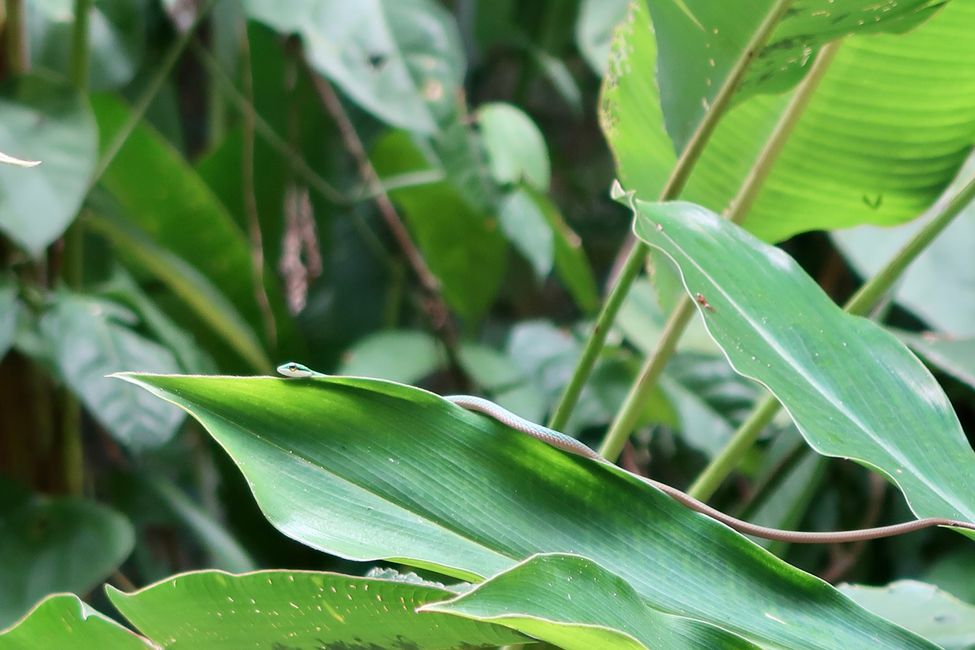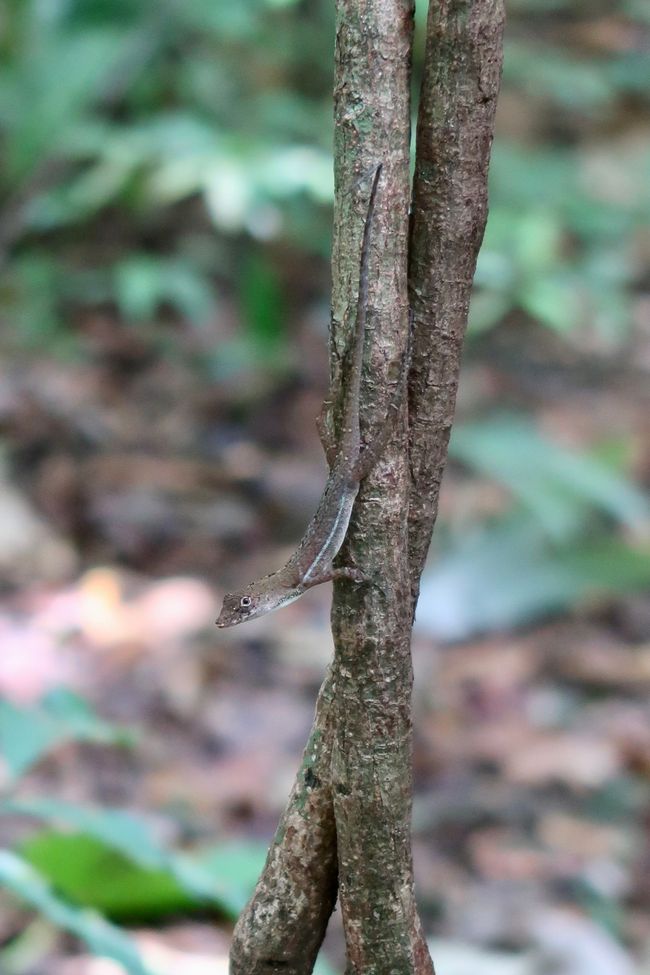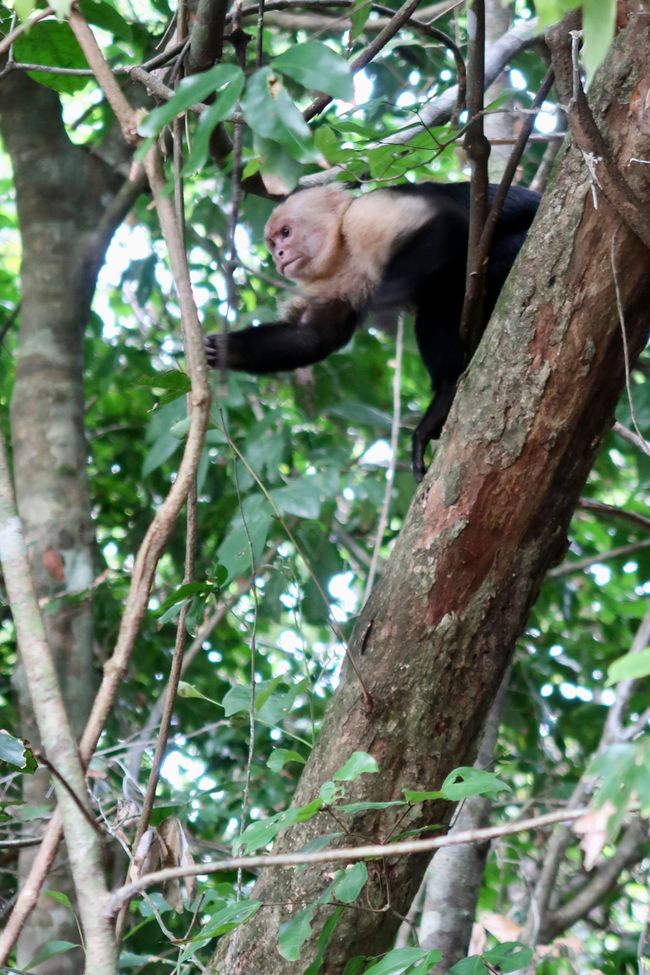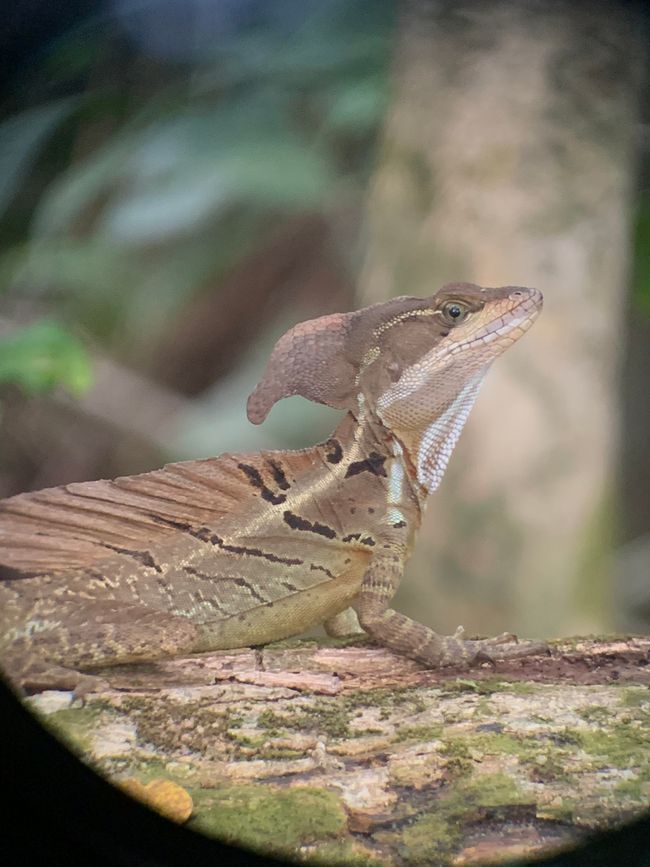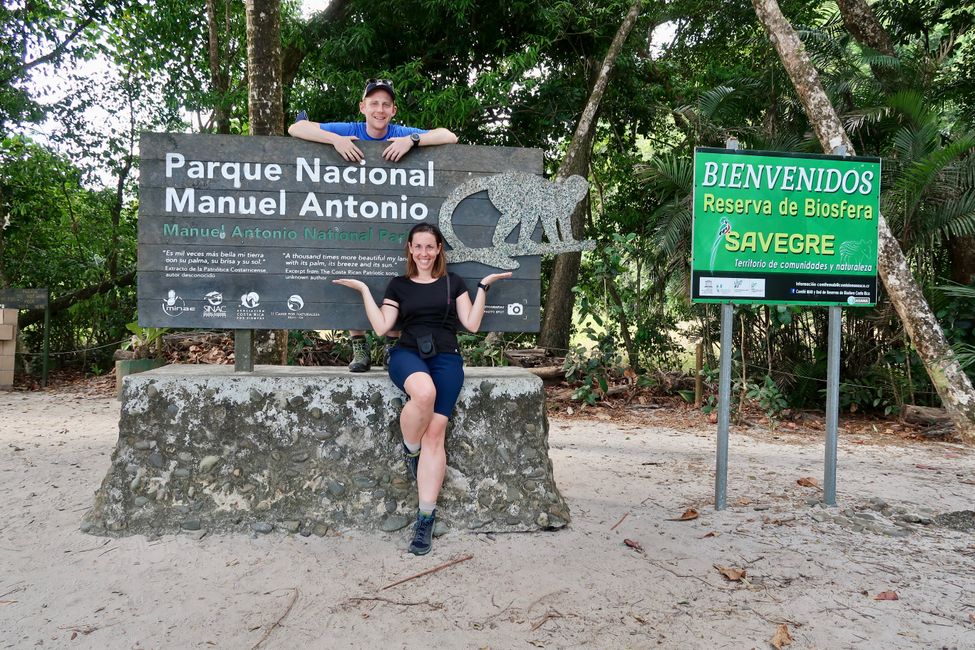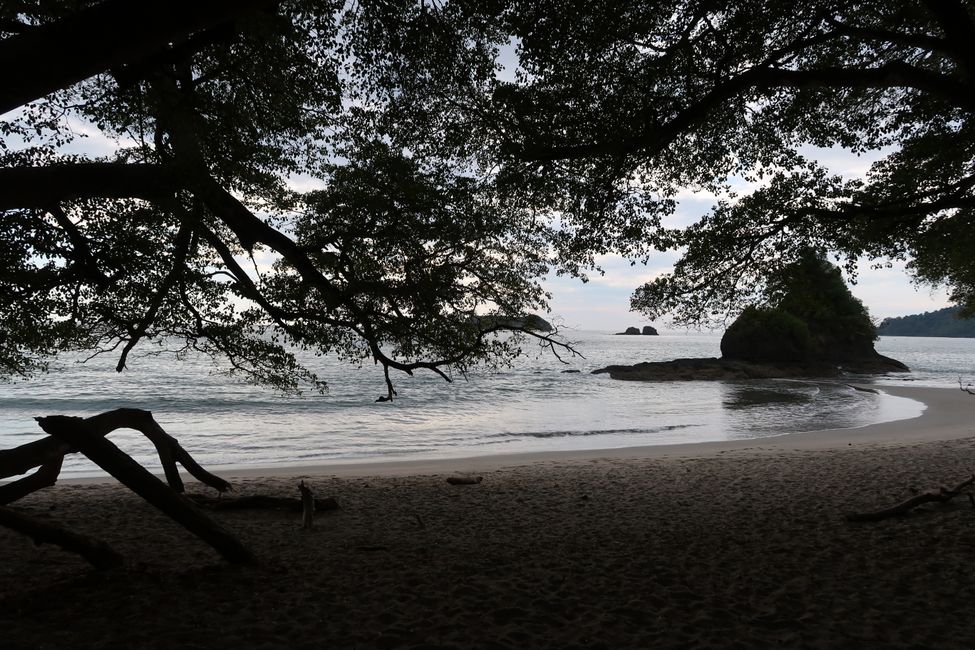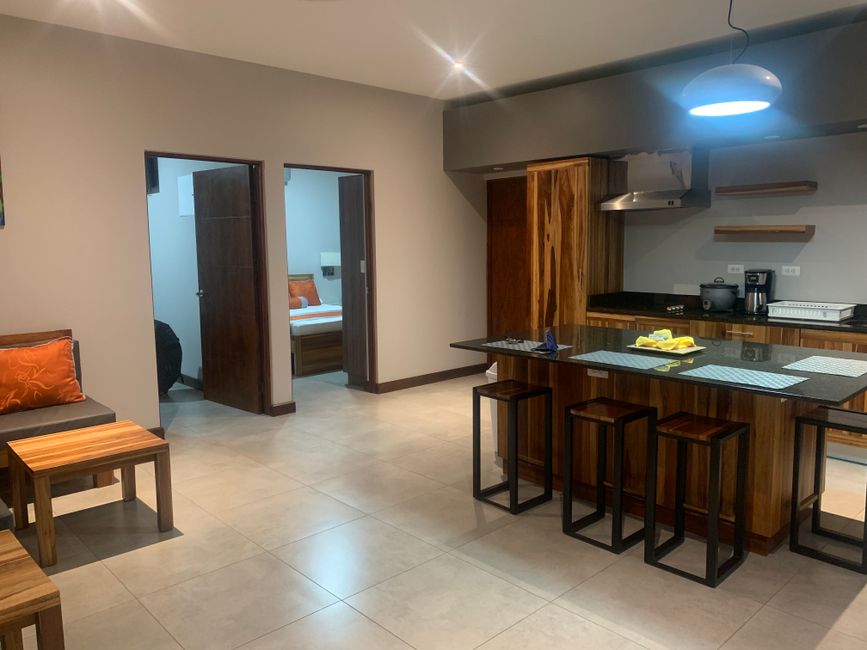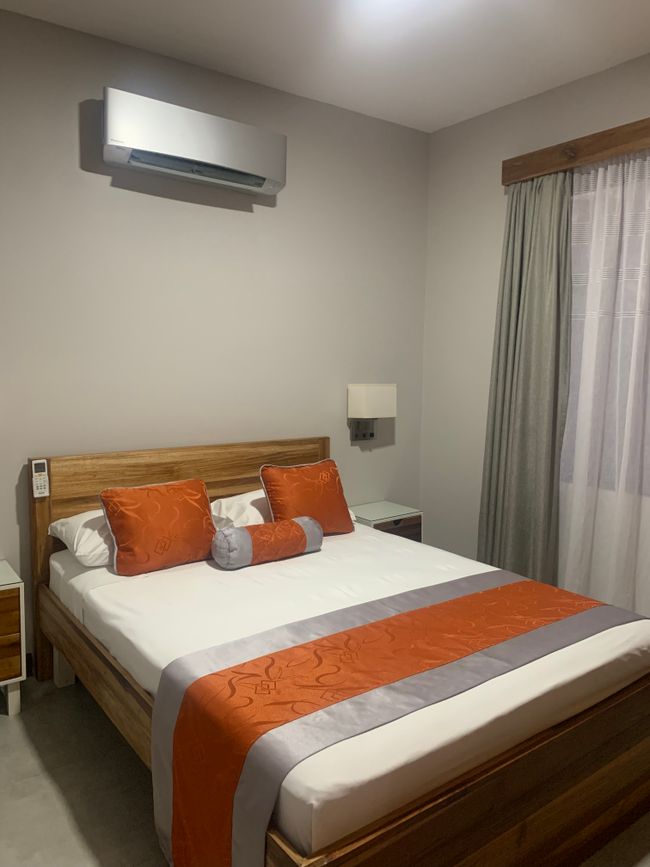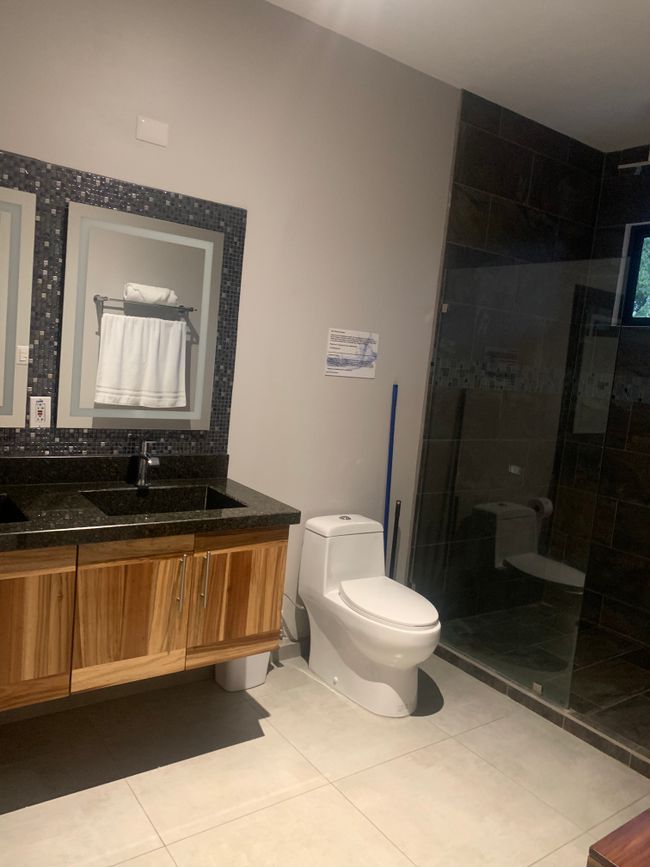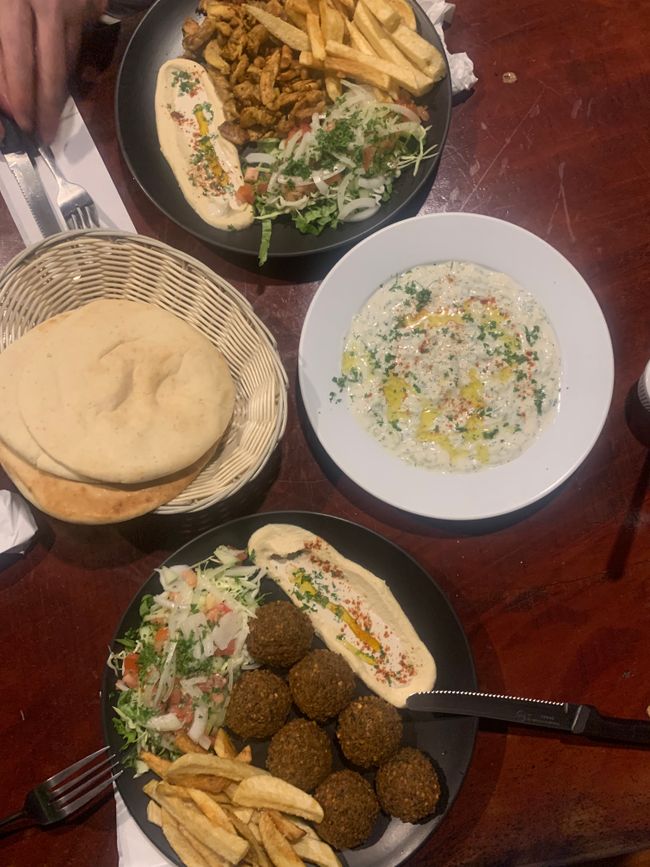Manuel Antonio National Park & onwards to Uvita (11.02.2022)
Објавено: 12.02.2022
Претплатете се на билтенот
Today, two big points were on the agenda: a visit to Costa Rica's most famous national park, Manuel Antonio, and packing up to continue to Uvita.
After a hearty breakfast with our iguana friends, packing our bags (getting faster and more routine) and checking out of the hotel, a small shuttle bus for the park picked us up with a 20-minute delay. We decided to leave the car at the hotel and chose the transportation option, which turned out to be a very good decision as we approached the national park.
The part of Manuel Antonio where the entrance to the national park is located is very touristy and full of souvenir stands, restaurants, and street vendors. The hustle and bustle in front of the gates of this natural gem is not very charming and very hectic. We had booked a package with transportation, entrance, and a guide in a group and were relatively well guided through the process. Beforehand, there was hand sanitization, a damp (refreshing) towel, fruit skewers, and jam sandwiches - a bit strange to be served on the street in front of the entrance, but okay, it's the thought that counts. After our backpacks were checked (only water, no food or tobacco, etc. - all very strict), we entered the park with our guide Michelle.
We started out quite motivated and quickly spotted the two- and three-toed sloths through binoculars (of course, they were sleeping) and also got good background information (more below). There were also small snakes, bats, and monkeys (the park has 3 out of the 4 species found in Costa Rica). The park itself is very well laid out with its paths and also easy to navigate. Our guide was patient with all our questions and fulfilled all our photo wishes. After about 1.5 hours, we reached the first of two beach sections within the park (total area 680 ha). Although it was cloudy today, the heat and high humidity were still reason enough for many visitors in the park to take a dip in the sea to cool off. After about 3 hours, 3.5 km, and many great photos, we finished the tour. The park is definitely worth a visit, as it offers a lot of opportunities to see animals of all kinds in a relatively compact area. We definitely didn't regret it, even though it costs around €45 per person.
Back at the hotel, we quickly checked the final result of the Rapid Salzburg soccer game using the hotel's Wi-Fi and quickly put away our phones. Kim Lee, our four-wheeled friend, was reactivated and the GPS was set to Uvita. The drive went smoothly on really good roads this time, you can tell that it's much better on the coast, for about 70 km south. For the next few days, we will be diving, so this time we booked accommodation very close to the diving school. The journey went smoothly after a refueling stop (by the way, there are still full-service gas stations here - you practically can't refuel yourself) and we were pleasantly surprised when we arrived at the accommodation on a better dirt road in the middle of nowhere. We didn't imagine it to be so rural, but we'll go with it and see what happens.
The accommodation itself (Ballena Paradise) is very new and consists of 8 apartments, all of which are very spacious. There is also a small communal pool and a very enthusiastic owner, who could speak Spanish with Kathi with great enthusiasm (as he claims his English is not so good). In the evening, we went down the dirt road to a falafel restaurant, which offered solid Oriental cuisine. As we sat and ate, it slowly dawned on us that we had landed in the absolute surf spot, as the few other guests were stereotypical surf dudes. Since we have to leave early at 07:00 tomorrow with the boat, we have to go to bed earlier today.
The Daily Two:
Insight: Sloths are very fascinating animals and of course, we don't want to withhold a few facts that we learned today:
- There are two species in Costa Rica, the two-toed sloth and the three-toed sloth, with the three-toed sloth being the marketing race, because Smiley Face
- The (three-toed) sloth was recently appointed as the national symbol of the country, which is approximately what the koala is for Australia.
- Both variants feed on a vegetarian diet, although the two-toed sloth can occasionally eat lizards and beetles
- A sloth primarily leaves "its tree" only for one reason, to defecate, it wants to keep the tree = its home clean
- Its biggest enemies are wildcats, such as the puma, and birds of prey, such as the eagle
- The sloth can move faster when it "has to" (e.g. to catch lizards), but usually, it moves very slowly or leisurely
Moment of happiness: The great animal pictures we were able to take today in the national park, even though we sometimes needed technical assistance through the guide's binoculars.
Претплатете се на билтенот
Одговори (3)
Ursula
Ganz tolle Bilder! Die Schlange kann ich nicht finden 😳Claudia
Moin Ihr Lieben, ich kann es gar nicht abwarten Faultiere zu treffen - so süß
🥰
Sagt mal, nutzt Ihr euren europäischen Datentarif für Handy/Pad oder eine lokale Karte? Katie-Ann
Hi Claudia! Wir nutzen eine Prepaid Karte von Kölbi. Haben wir einfach in einem der Geschäfte gekauft. Dauert ein paar Minuten und du brauchst nur deinen Pass. Sind 30 Tage gültig und kosten je nach Datenvolumen zwischen 12-18€! :)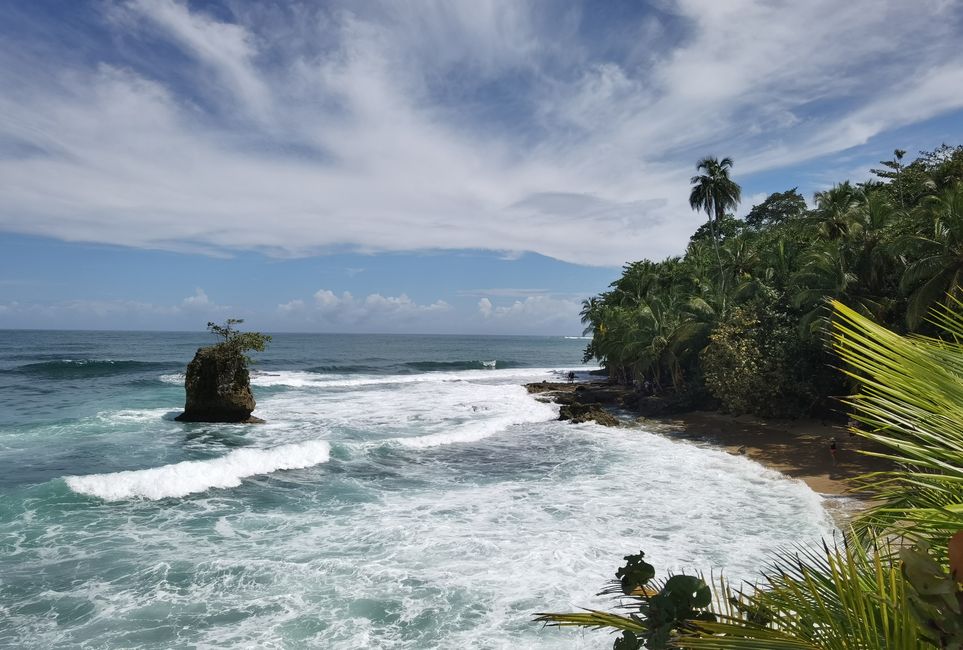
Извештаи за патување Костарика
